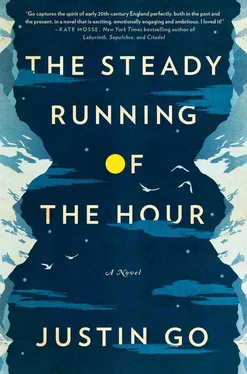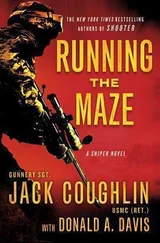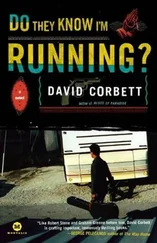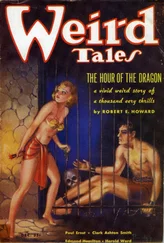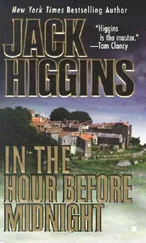— You speak French well, Mireille says.
— It should be better. I studied it all through college, but my grammar’s still pretty bad.
— It was your subject?
— No. I studied history.
— American history?
— European.
— Really? Why Europe?
I shrug. — Look at this city. Miles of catacombs under the street. A palace full of stolen treasure from all over the world. Revolution after revolution until nobody can remember which is which. They’d just pull out the same cobblestones to make barricades in the same places. Even the monuments here are crazy. A Roman-style victory arch made for Napoleon that Prussians march under in 1871, the French again in 1919, then Hitler in ’40, de Gaulle in ’44—
Embarrassed, I take a sip of beer. Mireille lights her cigarillo.
— But isn’t everywhere interesting? Where did you grow up?
— California.
— It must be very beautiful.
— It’s perfect. Everything you could ever need.
— Are you joking?
— I don’t know. Maybe I always liked things better that were far away.
Mireille looks toward the entrance. A group of people have come in and they are taking off their coats, glancing around the grotty interior as if surprised to find themselves here. Mireille turns back to me.
— You like things that are far away. But you’re here now, so you won’t like it for long.
— I’m leaving tomorrow, so I should be all right. But you said you’re from the north. What brought you to Paris?
— That’s a long story.
— I’ll tell you my story if you tell me yours.
— Do you have a good story?
— It’s not bad. But tell me yours first.
Mireille begins to roll a cigarette on the bar. She says that she moved to Paris three months ago from the south, where she had been living with her husband. She is twenty-three years old and she is divorced. Mireille sees that this surprises me and she laughs in embarrassment, looking down into her glass.
— I never tell people this. But you asked.
Three years ago Mireille and her boyfriend were at university in northeastern France. They were bored with college and wanted anything but the life they had. They ran off to the Mediterranean coast and got married. In the south they wrote fiction and lived mostly off welfare. Mireille learned seventeen different ways to cook a sack of potatoes and she hated them all. Their writing was published, but the marriage failed. This past summer Mireille had moved to Paris to begin an art degree.
— What made you get married?
Mireille shakes her head.
— I don’t want to say. I knew it was stupid, I just didn’t care. Maybe I thought that made it romantic. For now I just try to forgive myself for the last three years. And start over, pretending I’m eighteen again.
I watch Mireille as she talks about her art school. At times she seems shy or even embarrassed, looking away when I ask questions about her, but at other moments she seems comfortable, even playful. She makes a few good-natured jokes as if to test the waters. The way the bartender bounces his head in time with the music. The way I keep my camera slung over my shoulder even when I’m sitting down.
— Are you about to leave? It looks like you’re ready to go—
— It’s just safer this way.
Mireille lights her cigarette and begins to roll another one as she smokes.
— You seem like a careful person.
— I wish. If I were careful, I wouldn’t have come to Paris at all.
— Why are you here? You never told me your story.
— You won’t believe me.
— I’ll believe you if it’s true.
I tell Mireille about my week in Paris, about the libraries I visited and all the mistakes I made. Soon I’m telling her about the painting and the estate, and just as I realize I’m breaking the confidentiality agreement I also realize that I don’t care. Because I can’t see how telling a person with no connection to any of this could make any difference, and how Prichard could ever find out. And even if I am drunk, I’m tired of having no one to confide in, no one to tell about everything that’s happened in the last three weeks. Mireille listens without interrupting. When I’m done she gives me the cigarette she has rolled.
She smiles. — It’s not much, but it’s all I have.
The bartender turns up the stereo very loud. He switches on the overhead lights.
— I think they’re closing, Mireille says.
— Do you believe my story?
Mireille looks toward the door. She stands and puts on her coat.
— No, she says. But I liked it anyway. Come on, we’d better go outside.
We leave the bar and stand uncertainly in the narrow street, looking at our shoes, at the shiny paving stones below us. Finally Claire comes out, pulling on a bright red overcoat.
— What happened with your friend? Mireille asks.
— He was strange, Claire says. Very strange.
The métro is closed for the night, but Mireille invites us to her apartment in the Eleventh Arrondissement to have hot chocolate until the trains begin running again.
— Besides, she whispers, I have something I want to ask you.
— What’s that?
Mireille puts a finger to her lips as Claire walks on ahead.
— Attends . Wait till we’re alone.
The three of us follow the riverbank to the Pont Sully. We pass over the Seine and the Île Saint Louis, walking toward the place de la Bastille. I pull the plastic bottle from my bag and take a sip. Claire watches me.
— What’s that?
— Wine. I can’t afford to get drunk in bars.
Claire looks at my bottle dubiously. — So American.
— You don’t want any?
The girls both take a drink. It’s a long walk down the rue du Faubourg Saint Antoine, the green street-sweeping machines rumbling past us into the darkness. Finally we reach Mireille’s building on a backstreet off the boulevard Voltaire. Mireille types a code into a keypad and we walk through a foyer with a large mirrored panel and a door.
— Madame Fuentes’s apartment, Mireille says. The concierge. I don’t think she likes me, she never gives me my packages—
We go upstairs to Mireille’s small studio apartment, furnished only with a desk and a foldout couch. Claire sits cross-legged on the carpet rolling a cigarette. In the closet-size kitchen Mireille warms milk on a two-ring electric burner and breaks squares of dark chocolate into a saucepan. She pours the steaming chocolate into mugs.
— When is your train to Amiens?
— One o’clock.
Mireille nods, pouring the third serving into a bowl.
— I don’t have enough cups, she says. But I like drinking from a bowl.
We drink the chocolate sitting on the carpet. Claire changes the CD in the stereo and we talk about music for a while.
— I want to visit the States, Claire says. Have you been to New York?
— Once. I took the bus there last summer.
Mireille raises her eyebrows.
— From California? Isn’t that far?
— It took a couple weeks each way. With a lot of stops.
— What was you favorite? Claire asks. New York?
— Not New York. Probably someplace in Montana. Or New Mexico. The middle of nowhere, that’s my favorite.
Mireille smiles. — That’s because you didn’t grow up in the middle of nowhere. Where are you going to visit in Picardie?
— Everywhere I can. I want to see this battlefield near Eaucourt.
I have a photocopied map of the Somme battlefields in my shoulder bag and I show this to Mireille. She points out her town and a few nearby landmarks. Claire spreads out on the couch and shuts her eyes. Mireille goes to the kitchen and gets a small bottle of whisky, pouring a little for each of us. She smiles.
Читать дальше
